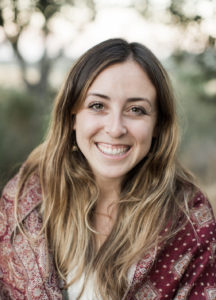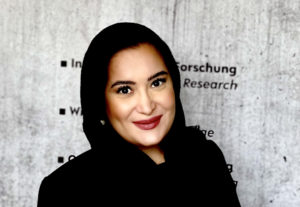Centering Community Healing from a Warrior’s Path Task Force Lens
Kristina C. Mendez and Zeynep Demir
The world has become diseased with a virus, but what causes us to be diseased is something we often forget. The real virus is not in the body, but rather in the mindset. The most dangerous virus is racism. We remain optimistic that we can overcome the COVID-19 pandemic. But we must ask ourselves if we can ever defeat racism, which has persisted resistantly in minds, attitudes, and behavior for generations, from the times of exploitation by colonial powers to the present. As psychologists and researchers of color, we ask ourselves the question: Which part of the Earth is diseased, and which is healthy? Who determines what healing should look like? So far, Eurocentric forces from the West have been playing at being the healers with their modern medical methods to help and heal the “diseased” South and East. Since when can the South and East no longer help themselves?
We invite a remembrance of the ways we used to heal. Decolonizing our community healing, our medicine, encourages the empowerment of community members to offer their gifts of healing to their own peoples. By supporting the liberation and empowerment of community healers (i.e. curanderos, intuitive healers, therapists, doulas, herbalists, etc.), these healers can in turn empower their own communities in a culturally attuned and impactful way. The community then invests itself in a reciprocal relationship, with energy, funds, and resources self-contained to promote community thriving as a whole. This invites a shift from current colonial models of “medicine” that so often divert community wealth to outside professionals who peddle constructs of salvation from white supremacy to those who are oppressed by it. By empowering existing healers, and those with gifts to be brought forward to the collective, the community can be reconnected to authentic healing that comes from within their existing support system. This healing relationship is within and for the community, as a closed feedback loop of resources and wellbeing.
We consider ancient modalities of healing that do not come from the Eurocentric empirical approach. For time immemorial, storytelling has been a means of healing. Storytelling occurs among communities, with these traditions and stories often passed down from the elders. In passing on the wisdom of our ancestry, we are caretaking for our ancestors and protecting our culture from erasure. Something as intuitive as storytelling becomes the community’s lifeline to its origins and its collective wisdom. In turn it becomes the community’s lifeline to its future generations. We may consider approaches to storytelling as an intuitive community process to heal from trauma, grief, and internalized emotions. Communities that gather to share stories are communities empowered to support one another. It is a return to Indigenous wisdom, traditional healing, and intuitive healing. It is a firm remembrance that communities do not need permission to heal from a Eurocentric process. Community healing, from Indigenous and ancient traditions, is a dismantling of the narrative of dependence on colonial, Eurocentric and white supremacist agents of “medicine.” It is a reclaiming of the medicine that sustained our wellbeing, and the wellbeing of the Earth, long before the White man arrived to commit genocide of our peoples, of our culture, our relationship with our ancestors, and the land. In reclaiming our traditions, as they are authentic to our peoples, we remember the medicine of our culture. We remember the medicine of the Earth.
We empower community healing through Indigenous liberation. By coming together as a collective to rematriate the land, re-instill Indigenous council and sovereignty and return to the right relationship with the Earth and all her creation. Community healing is not an isolated experience or occurrence. It is a collective call for liberation, for remembrance and a return to balance with the Earthly and spirit realms. This healing will undoubtedly involve mind, body and spirit – and storytelling is one example of how we can mend our peoples. We may consider so many additional, traditional means of healing, such as reclaiming sovereignty of our food and plant medicines. Such as reclaiming dance and song. These are non-exhaustive examples intended to remind us of the medicines of our ancestry. Healing comes in many forms and this is a call to remember, to mobilize and tend to our weary spirits together.
When we conceptualize community healing among ourselves as mental health professionals, we must ask ourselves- has our training and education brought us closer to our ancestors or farther from them? When we adopt Eurocentric ideals and bring them back to our peoples, is what we’re bringing back truly medicine?
“We must examine, interrogate, and struggle with our own internalizations of colonial values and process.” (WPTF, p. 31).
We invite collective liberation by encouraging collaboration among community healers who are mental health professionals to process our experiences navigating systems of colonial learning, so we can storytell and heal among this community of healers too. We hope that we will generate such abundance that we may even inspire and empower communities outside our own to share wisdom as culturally relevant and appropriate. White supremacy, racism and colonial oppression seek to divide and disempower us. We exact a call to gather and thrive.
“We must work together and in the spirit of collective action, let us be good ancestors to the coming generations.” (WPTF, p. 32)
Reference
Focus Spring/Late Summer 2021
- Spring 2021 Celebration of Students
- Graduate Student Representative’s Column
- Vision as Division 45 APA Council Representative
- Student Editor’s Column
- Special Interview with Accomplished Psychologist, Dr. Joseph E. Trimble
- Past President’s Column
- President-Elect’s Column
- Centering Community Healing from a Warrior’s Path Task Force Lens

